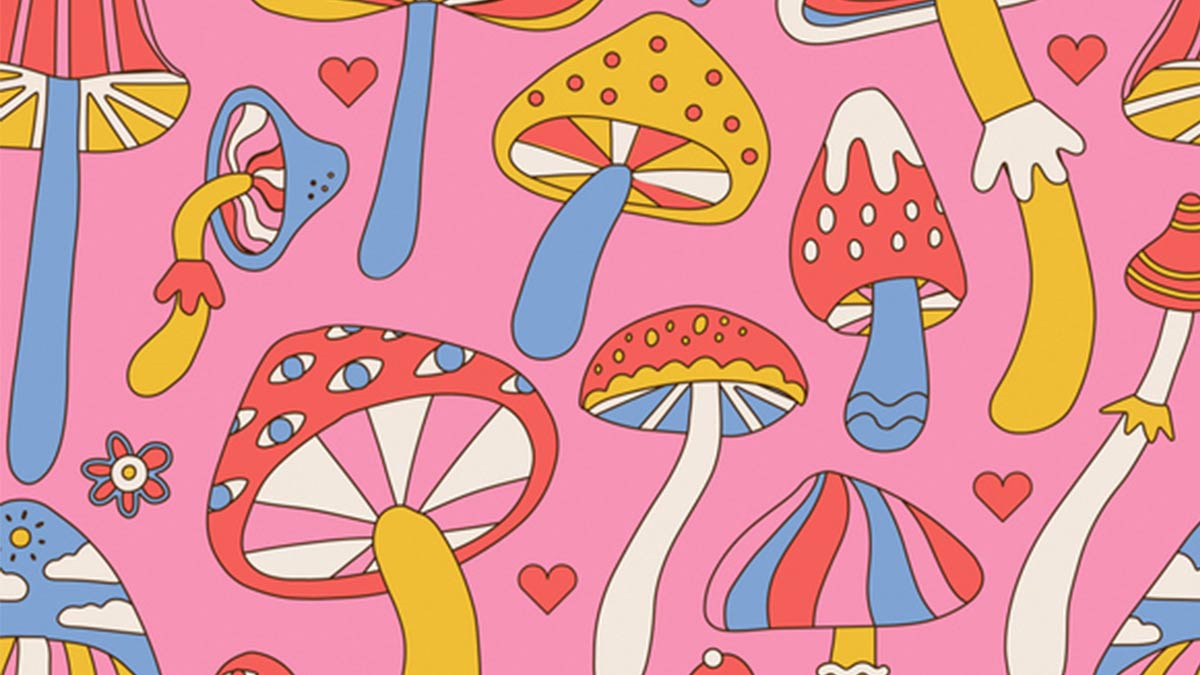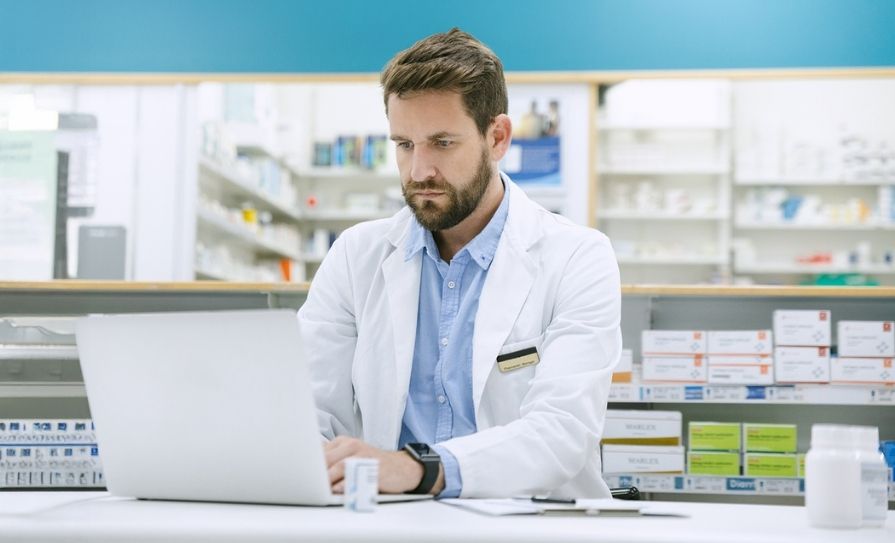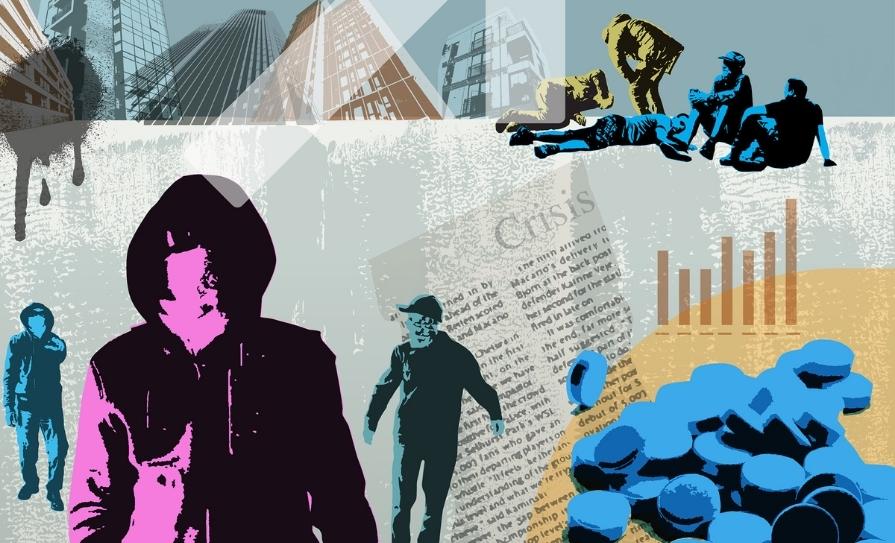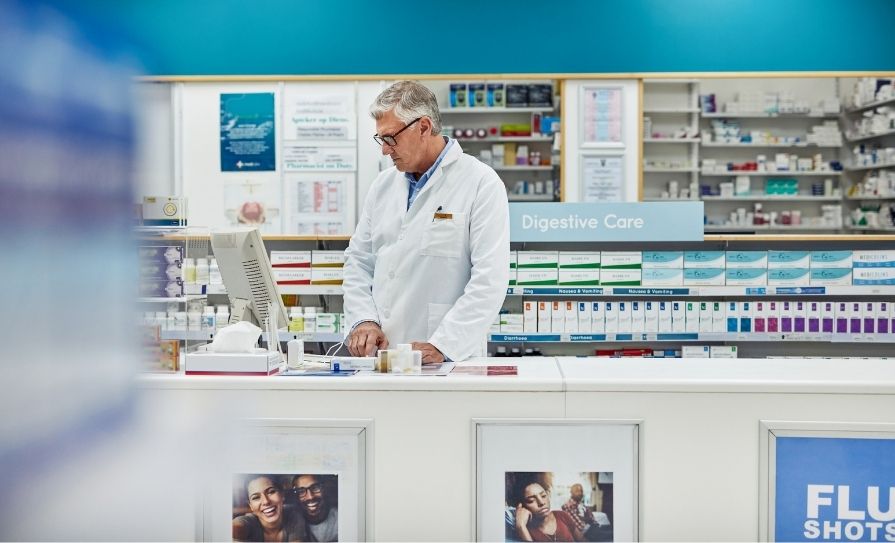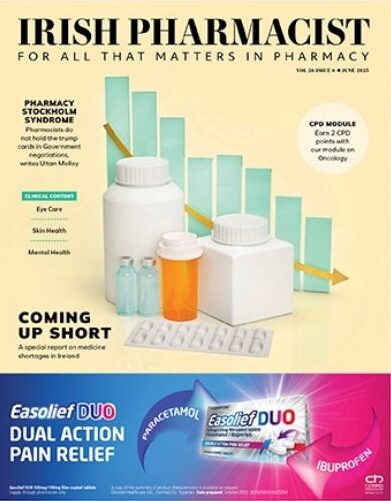The idea of using psychedelics, including psilocybin (from ‘magic mushrooms’) and MDMA (ecstasy), in psychiatry is again centre stage due to a recent report in the Lifestyle section of the RTÉ News app. Even more pertinently, the Australian equivalent of our HPRA (the Therapeutic Goods Administration, or TGA) has decided to allow, from 1 July, both MDMA and psilocybin to be prescribed by specifically authorised psychiatrists for the treatment of certain mental illnesses.
Under the TGA scheme, MDMA can be prescribed for the treatment of post-traumatic stress disorder (PTSD) and psilocybin for treatment-resistant depression, as these are the only conditions where there is currently sufficient evidence for “potential benefits in certain patients”, according to the Australian medicine’s regulator. They do not envisage a free-forall, as only those psychiatrists approved by the TGA under a new Authorised Prescriber Scheme, following approval by a human research ethics committee, may prescribe the two drugs. Strict controls are planned to ensure the safety of patients who the TGA recognises as being vulnerable during psychedelic-assisted psychotherapy. The Australian Poisons Standard will be amended to allow those authorised psychiatrists to legally supply a specified ‘unapproved’ medicine to patients under their care because the TGA has not approved any product containing either drug for quality, efficacy and safety
This article concentrates on what we know about MDMA as a drug and a medicine, because I dealt in detail with psilocybin in the March 2022 issue. We tend to think of MDMA as a relatively new drug because of its 1990s links to the Rave/Techno phenomenon, but it was first synthesised in 1912 and patented by Merck in 1914 as a precursor in the synthesis of haemostatic agents. It was revived by the US army in the 1950s as part of its chemical weapons programme. It remained in obscurity until it was rediscovered by the American medicinal chemist Alexander Shulgin, who synthesised it and several hundred analogues known as PIKHALs (‘Phenethylamines I Have Known and Loved’). Shulgin tested MDMA on himself, friends and relations in the mid1970s, describing its empathetic effects. This resulted in its use in the US as an adjunct to psychotherapy because of the emotional openness it created, leading to it being referred to as an entactogen, or more popularly as a ‘Hug Drug’. The originally suggested popular name for it was ‘Empathy’, but ‘Ecstasy’ proved more marketable and attractive to young recreational users, and the rest is history.
According to a 2019 review in Frontiers in Psychiatry, MDMA mainly acts by releasing serotonin and noradrenaline and to a lesser extent, dopamine. The effect on 5-HT receptors lessens feelings of depression and anxiety and increases feelings of closeness, compassion and empathy for oneself and others. It also releases oxytocin, which could add to the feelings of empathy. This pharmacological plausibility in some types of mental illness is backed up by clinical experiences gained during the 1970s. The belief is that the reduction in fear under the influence of the drug might allow patients to safely recall painful memories, hence its potential in cases of PTSD and also in Alcohol Use Disorder and in social anxiety associated with autism.
The TGA decision was influenced by an evaluation of the benefits and risks of both drugs prepared for it by several Australian researchers. This evaluation identified eight studies on the use of MDMA and six on psilocybin in conditions such as PTSD, treatment-resistant depression, OCD, social anxiety in adults with autism, and anxiety or depression in life-threatening disease. In the case of MDMA, six studies were on PTSD, with one each in autism and life-threatening disease. Half used an inactive placebo, with the remainder using low doses of MDMA as a control. All studies involved all participants receiving supplementary intense psychotherapy. After four-to-12 weeks post-administration, there were statistically significant differences in PTSD symptom scores between those given 100mg of drug and both active and inactive controls. The results for adults with autism were similarly significant, unlike those in life-threatening disease patients. The main adverse effects were anxiety, restlessness, fatigue, jaw-clenching, headache and transient increases in BP. Suicidal ideation was rare and reported almost entirely in placebo patients. According to the authors, evidence was strongest for MDMA, as the findings for psilocybin were affected by the cross-over nature of most of the studies on it. In general, the quality of all the psychedelic studies was deemed suboptimal because, in the case of MDMA, both observers and patients were aware of whether they were on the drug or not. In addition, those with a history of other psychiatric disorders such as schizophrenia and bipolar disorder were excluded from the studies and no non-European ethnic groups were included.
Another systematic review and metaanalysis published in the Journal of Clinical Pharmacology in 2022 found pronounced reductions in the Clinician Administered PTSD Scale (CAPS-IV) scores, with observable benefits within a few weeks and lasting for up to a year. The authors noted that MDMA was not a monotherapy, unlike SSRIs or venlafaxine that are the recognised frontline therapies for PTSD. This review reported that BP was transiently raised during MDMA administration, so it pointed out that the risk-benefit balance is unclear for patients with underlying hypertension or cardiovascular disease. A previous (2021) review in the Journal of Psychopharmacology found that compared to placebo, MDMA produced significantly more episodes of low mood, nausea and jaw-clenching during treatment sessions and a lack of appetite after seven days. This review concluded that in Phase 2 trials, MDMA-assisted psychotherapy had “some effect in reducing CAPS-IV scores”, but like all of the other reviews and papers, called for better-powered Phase 3 trials to establish the real value of MDMA.
A major unknown is the impact of the type of psychotherapy alongside the MDMA, and the reviewers for the TGA raised the question as to whether a specific protocol was needed. A group of Australian researchers, themselves involved in trials of psychedelic-assisted psychotherapy, also criticised this lack of clinical guidance. In an article in the Australian newspaper The Age, they criticised the TGA decision to allow prescribing as premature, not only because of the lack of guidelines, but also because of the lack of good data on long-term effects and most important of all, the absence of data on those with more complex mental health needs than the carefully-selected minority that were allowed on to the trials.
It will be interesting to see how the Australian experiment pans-out and whether there will be efforts to conduct trials on MDMA here in Ireland along the lines of the company-sponsored trial of psilocybin that included patients from Tallaght Hospital. In any event, given the example of the restrictive approach to supply in Australia, I doubt if you will be seeing ecstasy or magic mushrooms on your shelves anytime soon.
